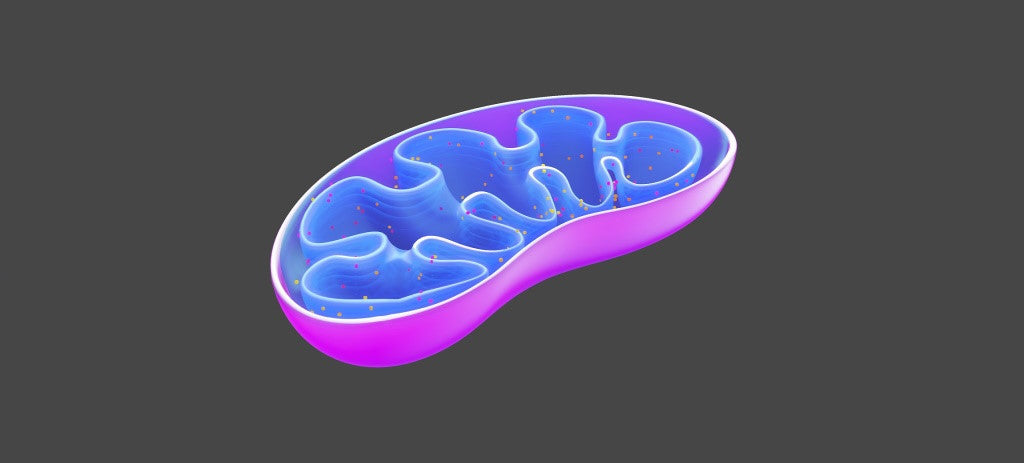Mitochondria are energy suppliers

What do mitochondria do?
Mitochondria are the energy suppliers of the cells. The tiny structures live in our cells and produce adenosine triphosphate (ATP), the most important energy molecule in the body, which all muscles and organs use as a source of energy.
Where do the mitochondria come from?
Mitochondria are residents of our cells, which can multiply through growth and budding and, according to the latest findings, have developed through symbiosis. It is thought that they entered our bodies as bacteria in ancient times and then learned that they had a better chance of surviving if they worked together with our cells.
The role of the mitochondria
With the mitochondrion, the body cell has gained a strong energy supplier and in return the mitochondrion is optimally supplied and protected by the cell. Both benefit from this symbiosis.
Decisive processes of the energy cycle take place in the mitochondria, because they have specialized in converting the energy that we absorb from our food via the intestines into the energy that every single cell in the body needs for its tasks.
We need energy from the mitochondria for all our senses, for every movement, for growth and especially to ward off diseases. The mitochondrial density is highest in the places where the most energy is needed, for example in the heart muscle or in the immune cells. Without mitochondria in the cells, a body can function just as little as without oxygen from the air.
Mitochondria support the immune system
In the case of sudden accumulations of pathogens, for example during a cold epidemic, ourimmune defense immediately take action against intruders. For this purpose, among other things, the number of white blood cells as a non-specific defense system is greatly increased, which requires a lot of energy. A precautionary increase in the energy suppliers, the mitochondria, before the cold wave helps our immune system to protect us.
„Up to 90% of all chronic diseases are accompanied by a mitochondrial disorder. medical Rainer Mutschler from Heidelberg in 2013. So what could be more obvious than to increase the number of mitochondria and strengthen their performance in times of one-sided, stressed nutrition and constantly increasing physical and mental stress in order to support the body's own energy cycle and in particular to strengthen the immune cellsn?
We live differently today than before?
Today's life is characterized by speed. An exchange of views in the Middle Ages lasted months, sometimes even years. The messengers traveled under the most difficult conditions to exchange writings. Just a few decades ago, correspondence lasted weeks. There was enough time to think things through. Today, a sender of electronic messages expects a response in the shortest possible time. This makes the planning of the daily routine more hectic, we are driven and that almost around the clock.
New challenge for the metabolism
The demands on our body are no longer characterized so much by physical exertion, but by mental flexibility and speed and the ability to buffer long-term stress and regenerate in a very short time.
Our metabolism, i.e. the conversion of energy from food into energy that our cells need, is therefore faced with new challenges. Unfortunately, we adjust our diet insufficiently to these changed circumstances. On the contrary, we put additional strain on our organism with food that appears to be unnatural (fast food, preservatives, antibiotics in factory farming) and challenges our metabolism.
What can you do?
In very few cases will the individual succeed in fundamentally changing his or her life. The goal is too high. And unrealistic goals tire and frustrate. On the other hand, if you manage to integrate small goals in the form of healthy habits into your daily routine, then you lay the foundation for success, satisfaction and happiness.
My tip for you: Don't set your goals too high and reward yourself for small interim successes. You can find many other valuable tips that you can easily integrate into your everyday life in ourhealthy tips.





Comments